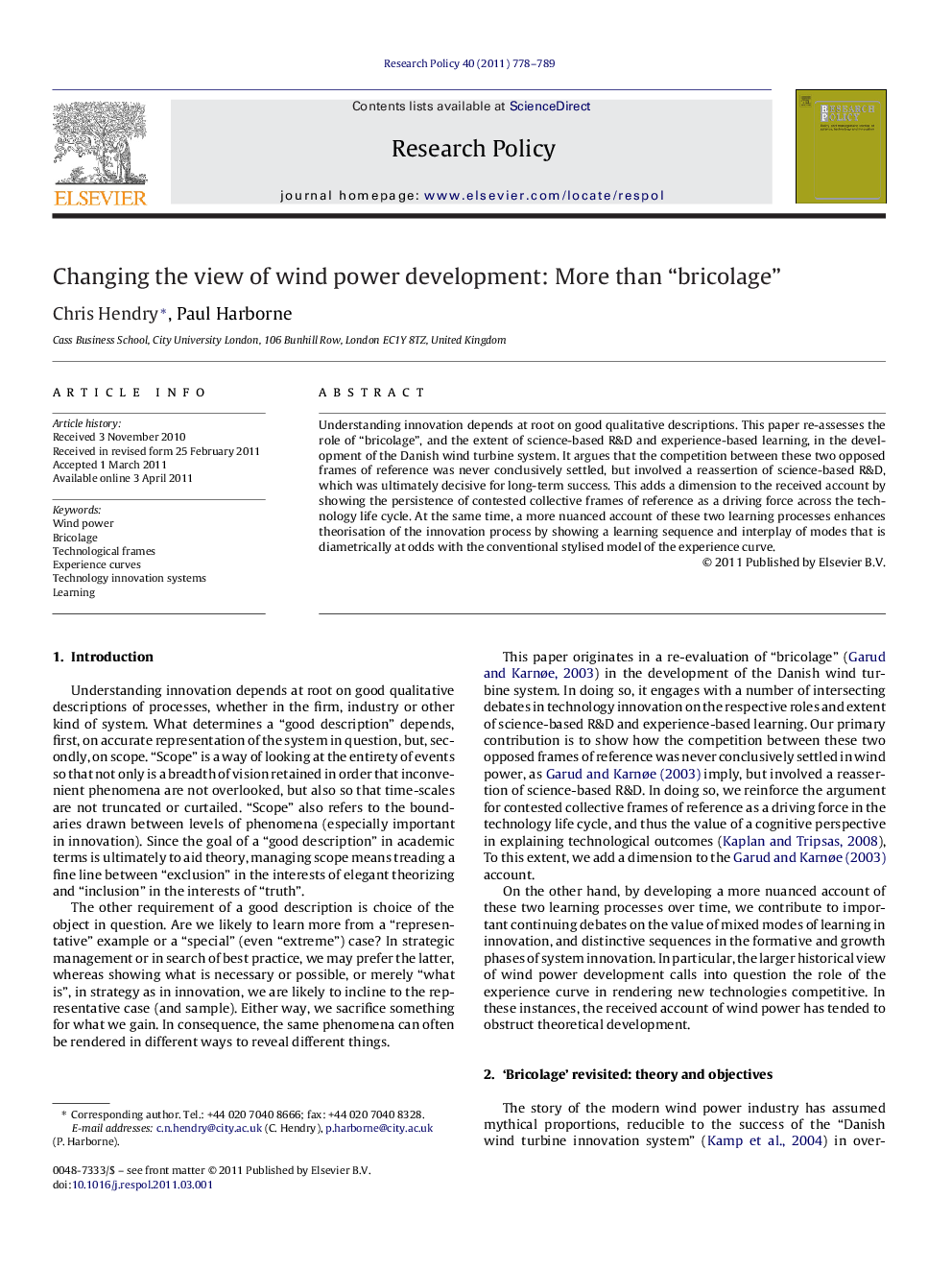| Article ID | Journal | Published Year | Pages | File Type |
|---|---|---|---|---|
| 985081 | Research Policy | 2011 | 12 Pages |
Understanding innovation depends at root on good qualitative descriptions. This paper re-assesses the role of “bricolage”, and the extent of science-based R&D and experience-based learning, in the development of the Danish wind turbine system. It argues that the competition between these two opposed frames of reference was never conclusively settled, but involved a reassertion of science-based R&D, which was ultimately decisive for long-term success. This adds a dimension to the received account by showing the persistence of contested collective frames of reference as a driving force across the technology life cycle. At the same time, a more nuanced account of these two learning processes enhances theorisation of the innovation process by showing a learning sequence and interplay of modes that is diametrically at odds with the conventional stylised model of the experience curve.
► Re-appraises bricolage in the long-term development of the Danish wind turbine system. ► Provides a more nuanced account of science-based R&D and experience-based learning. ► Shows learning sequences diametrically at odds with the experience curve model. ► Suggests the changing nature of learning in formative, take-off and TIS growth phases. ► Affirms contested frames of reference as a driving force in the technology life cycle.
